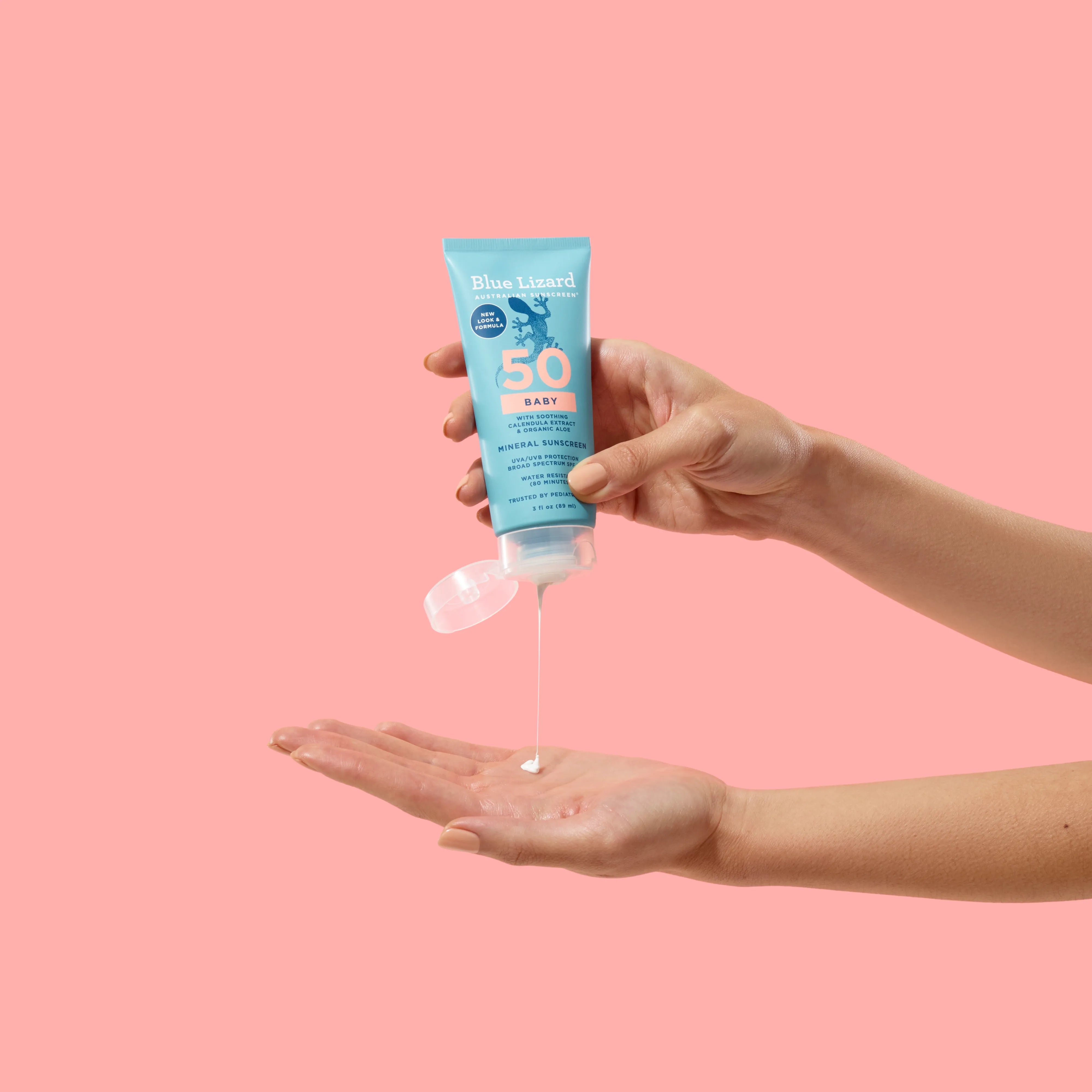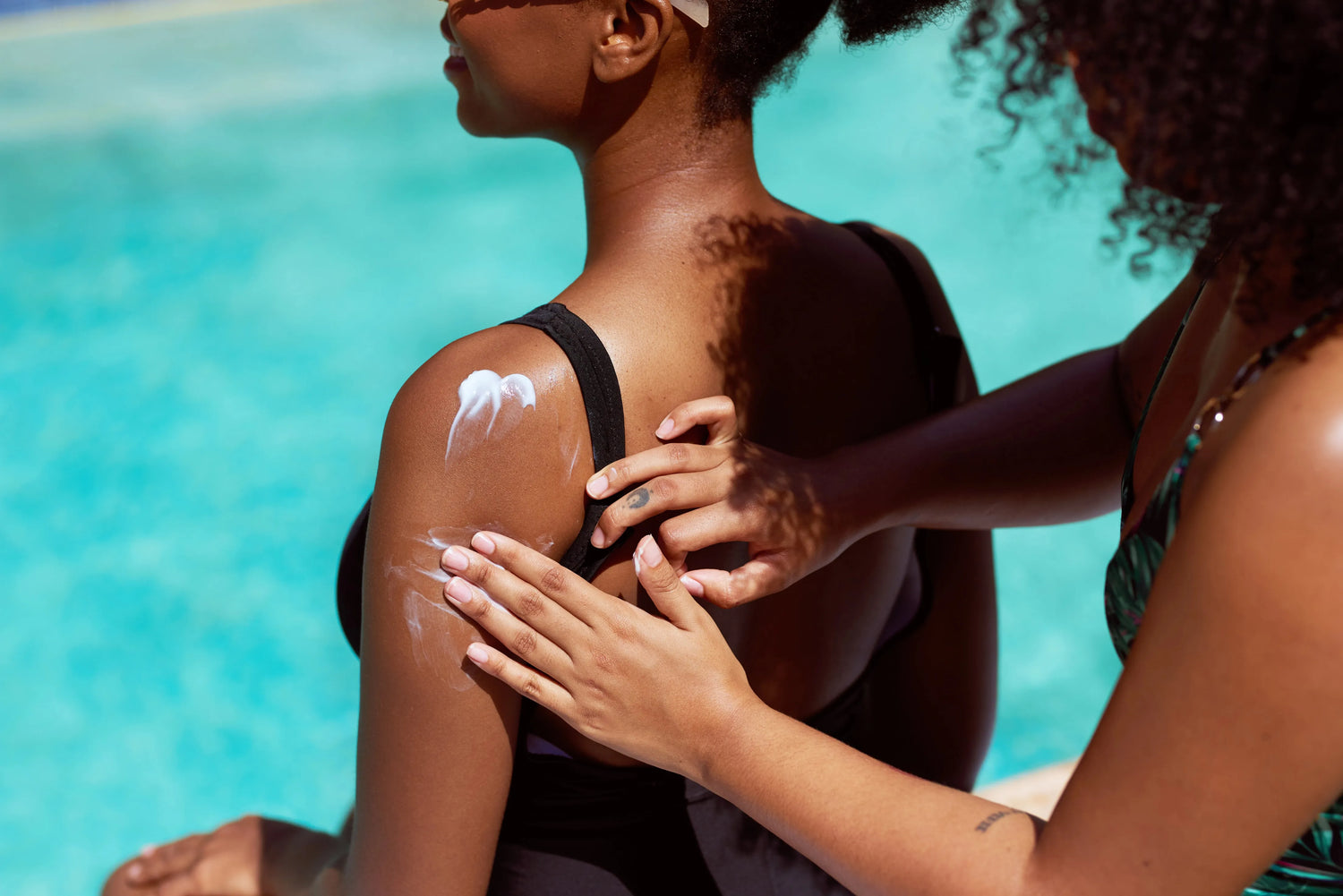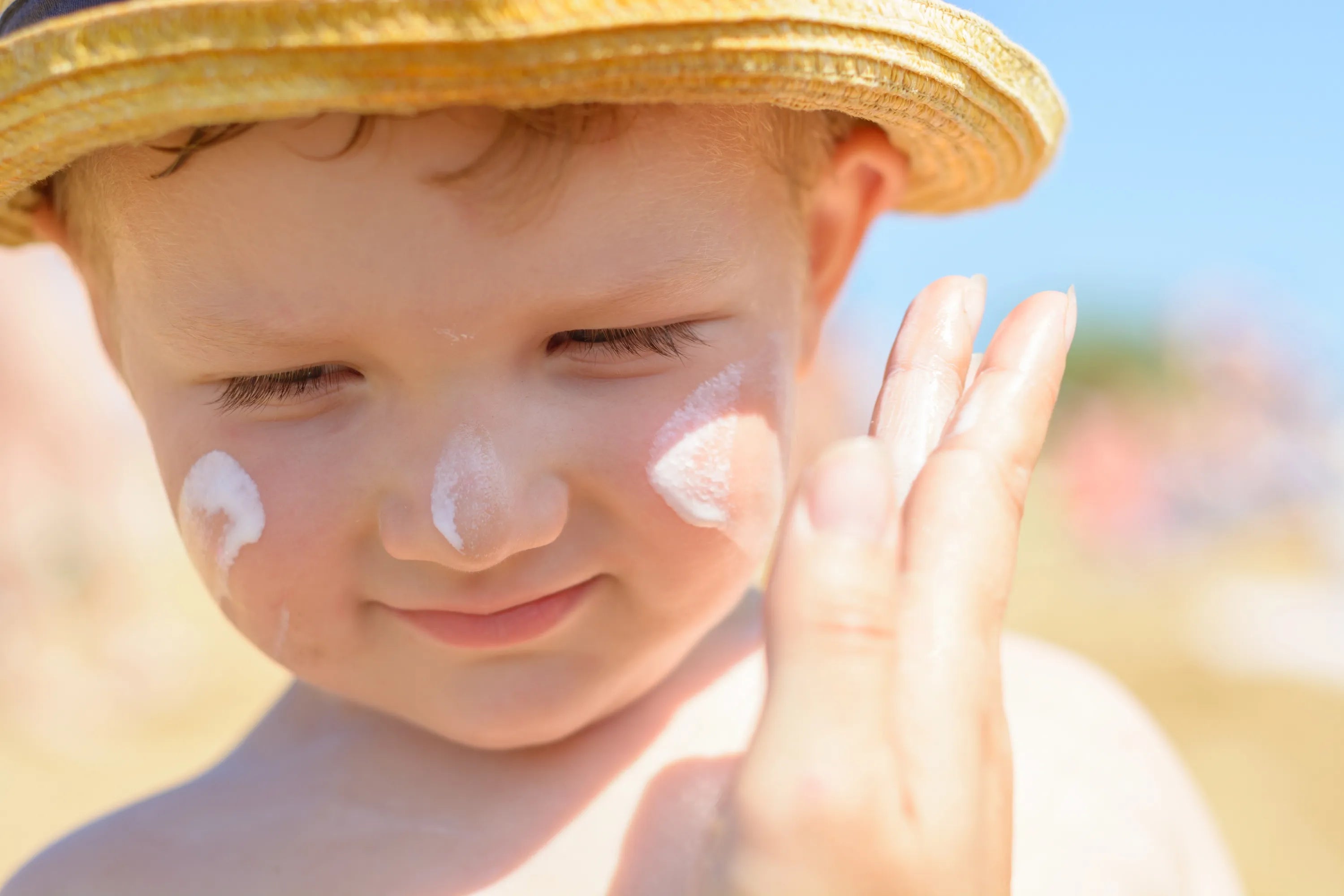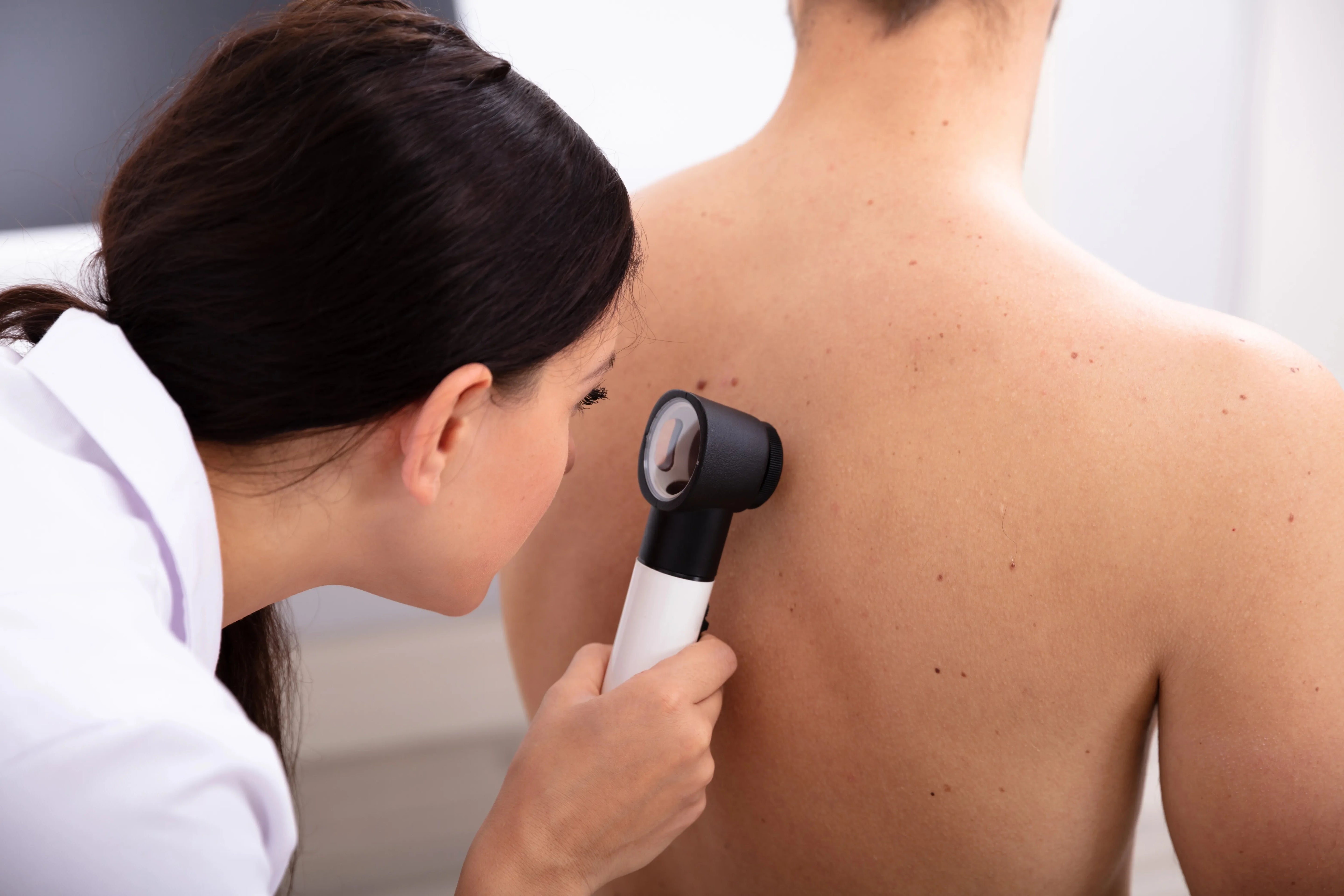There’s a rumor floating around that darker skin tones don’t need sun protection. That is 100% undeniably, scientifically, unequivocally a MYTH. So, why aren’t dark skin tones better protected from the sun? And is there anything to know about protecting your specific skin tone? Let’s bust this myth right open with a dive into the deep end of the Fitzpatrick scale.
What gives skin its color?
Why do we have all kinds of different skin tones? Our skin has special cells called melanocytes that produce melanin. How much melanin your skin produces determines your natural skin tone. The more melanin, the richer and darker the skin’s color. Dark-skinned people naturally produce more melanin in their skin while people with fair skin produce less melanin. Plot twist: your body can do both. That’s how we get birth marks, freckles and dark spots.
While melanin’s natural purpose is to provide skin with some protection from UV radiation, dermatologists all agree relying on your skin to protect itself and ditching sunscreen is not the right call.
What is your skin tone?
How do you classify skin tone or color? Dermatologist Dr. Thomas Fitzpatrick had the same questions and devised a scale to help everyone understand their skin color. The Fitzpatrick scale measures the amount of melanin in the skin and how it reacts to UV rays. It has six levels, from pale white to deeply pigmented dark brown. It looks like this:
1. Type 1 – Light, Pale White – Always burns and never tans
2. Type 2 – White, Fair – Usually burns, tans with difficulty
3. Type 3 – Medium White to Olive – Mild burns, gradually tans to olive
4. Type 4 – Olive, Moderate Brown – Rarely burns, easily tans to moderate brown
5. Type 5 – Brown, Dark Brown – Very rarely burns, tans very easily
6. Type 6 – Black, Very Dark Brown to Black – Never Burns, tans very easily, deeply pigmented
Melanin won’t protect you fully from the sun’s rays.
So, is there any truth that darker skin tones have “natural sun protection”? Well, maybe some… but not enough.
Dr. Meena Singh of the Kansas Medical Clinic says, “patients with darker skin tones exhibit natural SPF of up to 13, but the power of melanin is not that good at shielding against the sun’s damaging effects.” Dermatologists recommend a minimum SPF of 30.
The Risk for Skin Cancer
Unfortunately, the risk for melanoma through sun exposure is very real no matter your skin tone. The American Cancer Society estimates the five-year melanoma survival rate for black patients is only 71%, versus 93% for white patients.
Why? Because of what researchers are calling the Sunscreen Gap. Researchers believe that since the myth that darker skin tones don’t need to wear sun protection has spread so widely, people with darker skin tones are diagnosed later than those with lighter skin.
Common Melanin Myths that are causing the “Sunscreen Gap”
Myth: The Sun’s Rays Won’t Damage Dark Skin
Fact: No skin tone is 100% effective at preventing the sun from penetrating. It will damage any skin.
Dark or light skin has nearly the same number of melanocytes per square inch. However, the cells in dark skin produce larger clumps of melanin, shielding the sun from destroying the skin cell’s DNA.
Myth: Dark Skin Doesn’t Need Sunscreen
Fact: A quality sunscreen protects underlying skin cells from UV rays. UV rays can eventually cause skin cancer in any skin tone. Sun exposure is cumulative over a lifetime. Why take the risk when it takes only seconds to apply sunscreen or put on UV protective clothing?
Top Sunscreen Tips to Avoid Harmful UVA & UVB Rays. To get the most protection from Blue Lizard Mineral Sunscreen, follow these tips:
° Wear water-resistant sunscreen if you plan to sweat or swim
° Reapply at least every 2 hours
° Use a minimum SPF 30 Avoid peak hours when the sun’s rays are strongest
° Wear a hat, long sleeves, and cover your legs and feet as much as possible in strong sunlight
° Put on sunglasses to shield your eyes and protect the sensitive skin around them
All skin is susceptible to wrinkles, drying, peeling, and melanoma if you don’t take care.
Our Final Myth: All Sunscreens Are the Same
Fact: That’s not true. There are two types: chemical and mineral. Mineral sunscreens are gentle on skin and protect it by forming a layer on top of skin to deflect UV rays away from the body. Dermatologists and pediatricians trust Blue Lizard’s mineral sunscreen to keep their patients sun safe.
Protect Your Skin with Blue Lizard: Superior Mineral-Based Sunscreen for all skin tones
Blue Lizard Sunscreens are an easy way to start living a healthier lifestyle and protect your skin. Our Sensitive sunscreens are gentle enough to use every day on all skin types from baby’s delicate arms to adults with sensitive skin. They’re also water and sweat resistant for outdoor adventures and workouts.
For darker skin tones, try our Sheer Mineral Sunscreen for Face and Sheer Mineral Sunscreen for Body. Both of these gentle daily sunscreens nourish and condition skin with a super blend of antioxidants and moisturizers. They also dry clear minutes after application. Our Sheer Mineral Sunscreen for Face also helps protect skin from blue light that comes from our device screens.








